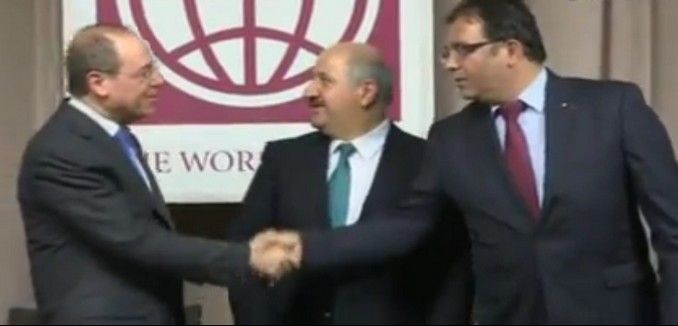A former Israeli senior national security official said that it’s in the “basic interest” of both Israel and Jordan to resolve a diplomatic crisis stemming from a terrorist attack at the Israeli Embassy compound in Amman on Sunday. Two Jordanians were killed in the attack, including one who stabbed an Israeli security guard with a screwdriver.
Dr. Eran Lerman, former Deputy for Foreign Policy and International Affairs in Israel’s National Security Council and currently a senior research associate at the Begin-Sadat Center for Strategic Studies, said that for Israel “there’s no alternative to the relationship with Jordan.” He explained that Jordan is an important partner for Israel, both in regards to countering the current unrest at the Temple Mount in Jerusalem—which is being fanned by Palestinian incitement—as well as threats emanating from Syria, which borders both nations.
Israel’s ambassador to Jordan, Einat Shlain, is one of Israel’s “best and brightest” diplomats and has arrived back home for consultations, Lerman said. The head of Israel’s Shin Bet domestic security agency, Nadav Argaman, was in Amman on Monday in an attempt to defuse tensions.
On Sunday evening, a 17-year-old Jordanian—Mohammed Jawawdeh—installed furniture in a bedroom at the Israeli Embassy compound before using his screwdriver to stab an Israeli guard there. The guard shot his assailant in self-defense, killing him and injuring a second man on the site, Bashar Hamarneh, according to a Foreign Ministry statement. Hamarneh later died of his wounds.
While Israel wants to return the injured guard home, noting that the Vienna Convention gives him immunity from investigation and imprisonment, Jordan is insisting on questioning him. Jordanian police are surrounding the Israeli Embassy compound, which remains under lockdown.
Lerman added that Israel also has to deal with Jordan over tensions stemming from the installation of metal detectors at the Temple Mount, as Amman’s role there is “governed by the Israeli-Jordanian peace treaty.” He added that Jordan must account for the weapons that were brought to the al-Aqsa Mosque on July 14 and used by a group of Israeli Arabs to kill two Israel policemen. Jordan, Lerman asserted, must “give a better answer to the question of how to prevent this from happening in the future.”
Lerman attributed the deadly July 14th attack to the northern branch of the Islamic movement in Israel, explaining that Islamist forces are striving for relevancy because “they actually found themselves, on several fronts, including the situation between Qatar and her neighbors, on the losing side in the last few months and this was an opportunity for them to shift the focus point of the discussion.”
Lerman also praised Washington’s special envoy for international negotiations, Jason Greenblatt, for returning to the Middle East to address the unrest over the Temple Mount. He expressed his hope that Greenblatt, a “very sober and effective low-key go between,” would come “with clear unambiguous messages” asking the Palestinians to stop inciting terrorism.
Despite the current standoff, “I don’t think we are about to see a meltdown,” Lerman said. He observed that trade ties; agreements governing water, electricity, and, in the future, natural gas; and concerns over ISIS and Iran mean that “Israel and Jordan have too much of a common interest in the balance in the region for this to overshadow this commonality.”
A complete recording of the press briefing is embedded below.
[Photo: Zoomin.TV World News / YouTube ]




